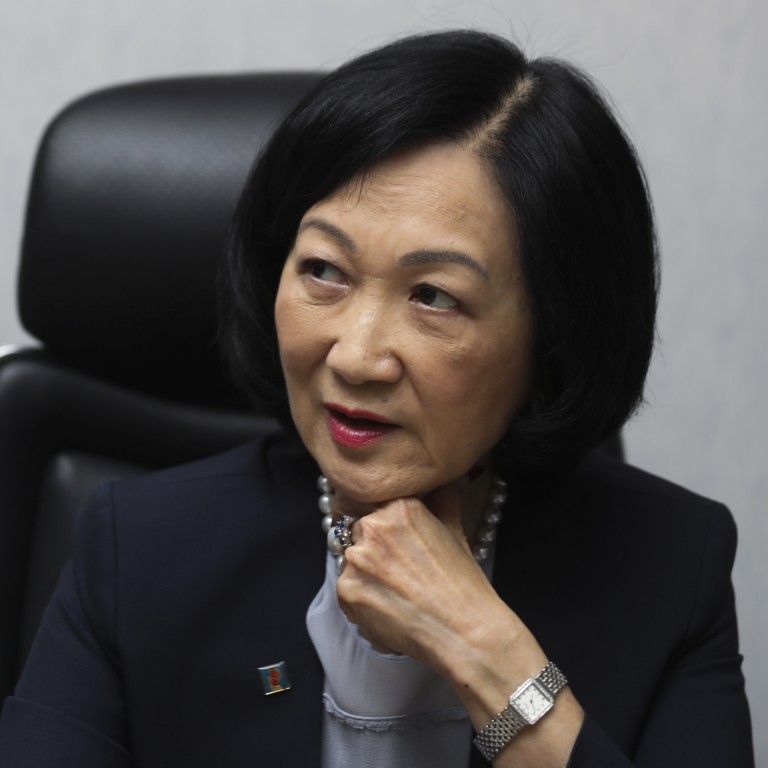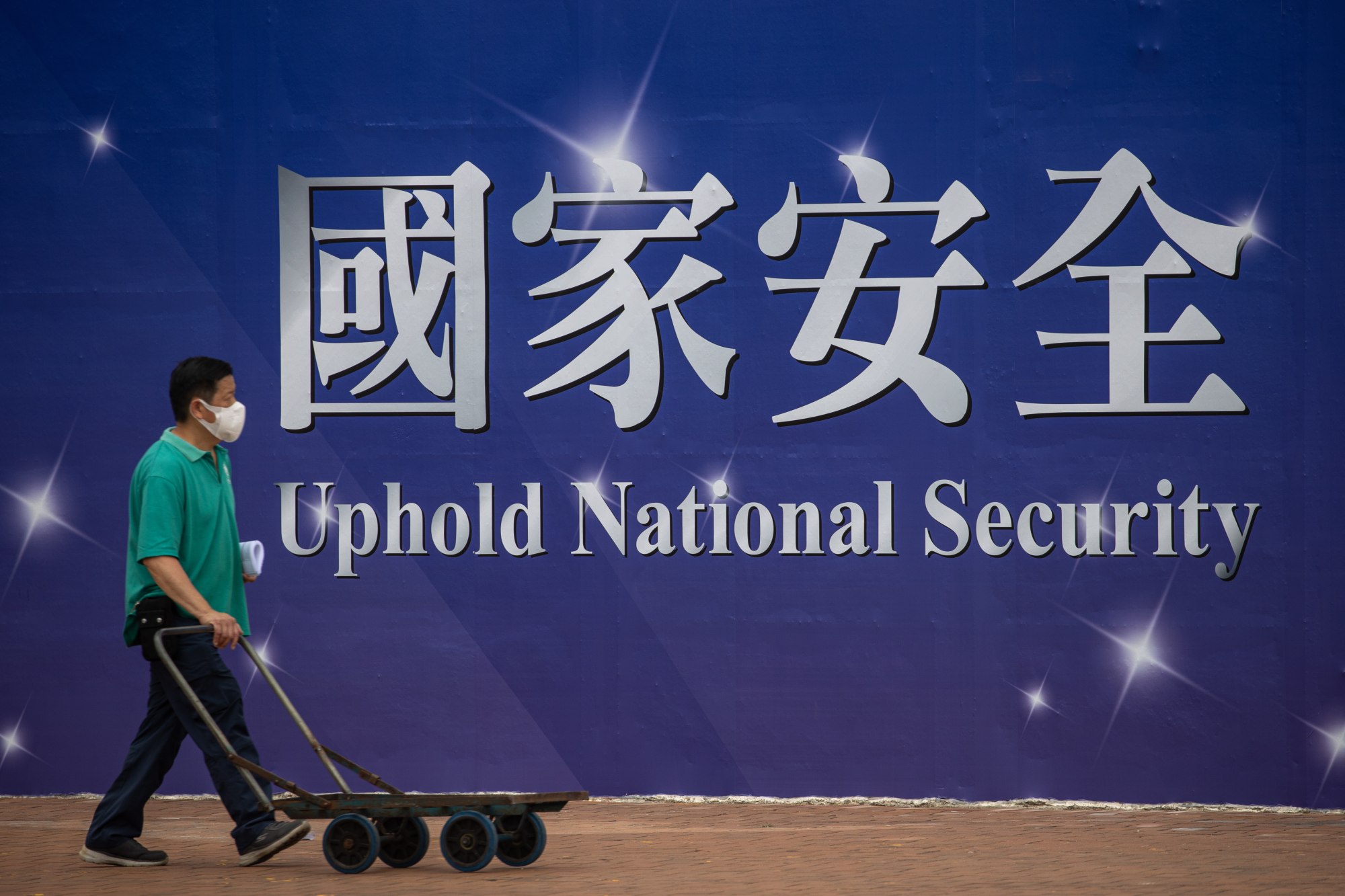
Hong Kong’s Regina Ip says state secrets definition in Article 23 national security law ‘should not align’ with mainland China’s
- City aims to pass local version of Beijing-imposed national security law in accordance with Article 23 of Basic Law, covering areas such as theft of state secrets
- Top government adviser Regina Ip says definition of state secrets should not align with mainland’s, argues freedom of information key to Hong Kong’s global status
A top Hong Kong government adviser has said a local version of the Beijing-imposed national security law should not define “state secrets” in the same way as mainland China, calling freedom of information key to the city’s status as a global financial hub.
In accordance with Article 23 of Hong Kong’s mini-constitution, the Basic Law, the city is drafting its own national security law to prohibit acts not covered by the legislation imposed by Beijing on June 30, 2020.
The law passed three years ago prohibits acts of secession, subversion, terrorism and collusion with foreign forces, while the legislation in the works will focus on outlawing theft of state secrets and banning foreign political organisations from conducting political activities in the city.
Executive Council convenor Regina Ip Lau Suk-yee on Saturday said the definition of state secrets used in the coming law should not align with the mainland’s understanding.
John Lee insists Hong Kong will pass Article 23 security law this year or next
Arguing that freedom of information was essential to Hong Kong’s standing as a global financial centre, she said the local national security legislation should define state secrets “very rigorously”. Ip noted that a previous effort to pass the law 20 years ago had proved such definitions were controversial among residents.
In 2003, Ip stepped down as security minister after spearheading a past attempt to enact the legislation, which was shelved when half a million people took to the streets in protest over fears of possible abridgment of civil liberties and rights.
“We should not align with the [mainland’s definition]. As an international centre for finances and commerce, freedom of information – in addition to the rule of law – it is very important,” she told a radio programme.
“The government must consider this very carefully.”
The mainland’s definition of state secrets can cover major policy decisions, national defence, foreign affairs, economic and social developments, science and technology, as well as security matters and criminal investigations.
It also includes “other matters that are classified as state secrets by the state secret-guarding department”.
Do whistle-blowers like Edward Snowden still have a place in Hong Kong?
Hong Kong’s Official Secrets Ordinance defines the unauthorised disclosure of information into six categories: defence and military; foreign relations; security and intelligence; law enforcement; economic and financial; as well as scientific and technological.
As an example of differing definitions, Ip said she believed the local security law should not classify the leaking of a government development project’s price tag as theft of state secrets.
The convenor of the city’s top decision-making body also said she had advised the government to step up efforts to reassure residents that national security legislation was common “all over the world”.
Singapore’s own laws for safeguarding national security were “much stricter” than Hong Kong’s, she added.
“Singapore has passed some regulations in the past few years. The first was to crack down on online fake news, and the second was to crack down on so-called foreign interference, both of which confer great powers,” Ip said.
“It is hard to imagine that [Hong Kong’s national security laws] will match that of Singapore,” she said.

Introduced in October 2019, Singapore’s Protection from Online Falsehoods and Manipulation Act stipulates that any government minister has the power to decide what constitutes a “false statement of fact”.
The city state’s Foreign Interference (Countermeasures) Act from 2021 also empowers officials to direct internet platforms to block social media accounts deemed to be engaged in hostile information campaigns, or instruct service providers to block local users from viewing such content.
“We should show people that the United States, Britain, Australia, and Singapore all have similar regulations. We will by no means be stricter than other places, and we are not stricter at present,” she said.
Hong Kong will forge ahead with plans to pass Article 23: justice secretary
Separately, Secretary for Justice Paul Lam Ting-kwok told a local newspaper that the local security was not enacted the first time because the public had lacked a correct understanding of the Basic Law’s Article 23.
The clause should be assessed in the context of the rest of the Basic Law, which includes provisions safeguarding residents’ rights and freedoms, he said.
Chief Executive John Lee Ka-chiu earlier renewed his pledge that the coming legislation would be passed no later than next year, stressing that the law would be drafted cautiously and take cues from other common law jurisdictions.

